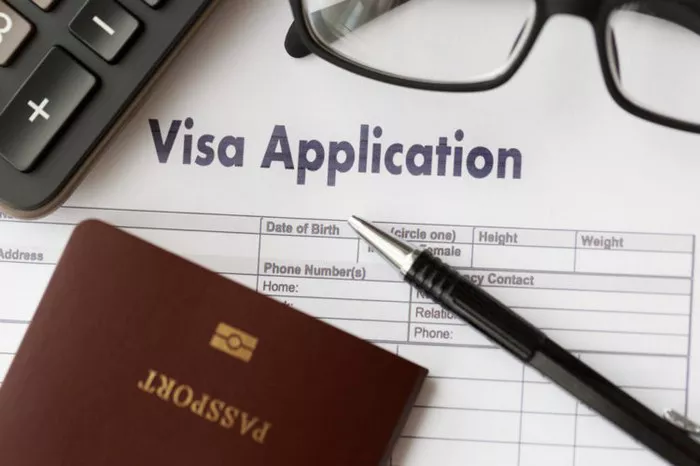In today’s interconnected world, citizenship is more than just a legal status—it defines one’s rights, opportunities, and sense of belonging in a society. However, the journey to obtaining citizenship can be fraught with challenges, and for some, the ultimate disappointment of denial can have profound implications. This article delves into the complexities surrounding denied citizenship, exploring the reasons for denial, the consequences for individuals and families, and the broader societal impact.
Citizenship represents the culmination of an individual’s integration into a new homeland—a process that typically involves years of residency, adherence to legal requirements, and a demonstration of commitment to the values of the host country. Yet, despite meeting many of these criteria, some applicants find themselves facing the harsh reality of a denial decision. This article seeks to unpack what happens when citizenship is denied, examining the personal, legal, and social repercussions that ensue.
Reasons for Denial
1. Legal and Procedural Grounds
Citizenship applications are subject to rigorous scrutiny, often based on strict legal criteria set forth by national immigration laws. Common reasons for denial include:
Failure to Meet Residency Requirements: Many countries require a minimum period of residency before one can apply for citizenship. Failure to meet this criterion can result in automatic denial.
Criminal Record: Individuals with a criminal history, particularly convictions for serious offenses, may find their citizenship applications denied due to concerns about public safety and adherence to societal norms.
Incomplete Documentation: Insufficient or inaccurate documentation can delay processing or lead to outright denial if crucial information cannot be verified.
Language and Cultural Knowledge: Some countries require applicants to demonstrate proficiency in the national language and a basic understanding of the country’s history, culture, and values.
2. Discretionary Factors
Beyond these objective criteria, discretionary factors may also influence the decision-making process:
Character Assessment: Immigration authorities often assess an applicant’s character and conduct to determine whether they are likely to be a productive and law-abiding citizen.
Security Concerns: In cases where national security is a concern, authorities may deny citizenship to individuals with ties to terrorist organizations or activities detrimental to national interests.
Fraud or Misrepresentation: Providing false information or misrepresenting facts during the application process can lead to denial and potential legal consequences.
Consequences of Denial
1. Personal and Psychological Impact
The denial of citizenship can be devastating on a personal level, affecting individuals and their families in profound ways:
Sense of Belonging: Citizenship represents belonging and identity. Denial can intensify feelings of exclusion and alienation, particularly for individuals who have invested significant time and effort in integrating into their host society.
Family Dynamics: In cases where one family member is granted citizenship and another denied, it can strain familial relationships and create divisions within households.
Career and Educational Opportunities: Citizenship often opens doors to employment, educational grants, and social welfare benefits. Without it, individuals may face limitations in accessing these opportunities.
2. Legal Ramifications
From a legal standpoint, denial of citizenship can lead to:
Immigration Status: Applicants may revert to their previous immigration status, which could include being on temporary visas or facing potential deportation if their residency status is tied to their citizenship application.
Limited Rights: Non-citizens may have restricted rights compared to citizens, including limitations on voting, holding public office, or accessing certain government services.
Appeal and Review Processes: Depending on the jurisdiction, denied applicants may have the right to appeal the decision through administrative or judicial review processes, adding to the legal complexity and potential for prolonged uncertainty.
3. Socioeconomic Implications
Beyond the individual, the denial of citizenship can have broader socioeconomic consequences:
Integration Challenges: Communities and societies benefit from the integration of immigrants who become citizens. Denial can impede this integration process, potentially leading to social segregation and mistrust.
Labor Market Dynamics: Citizenship status can affect an individual’s ability to secure certain jobs or advance in their careers, impacting both personal economic stability and overall labor market dynamics.
Social Cohesion: In multicultural societies, the denial of citizenship based on arbitrary or inconsistent criteria can erode trust in the fairness of the immigration system, potentially undermining social cohesion.
SEE ALSO: TRACKING YOUR CITIZENSHIP APPLICATION: ALL YOU NEED TO KNOW
Mitigating Factors and Pathways Forward
1. Legal Remedies
In many jurisdictions, individuals denied citizenship may pursue legal remedies:
Appeals and Reviews: Administrative and judicial appeals provide avenues for challenging denial decisions based on procedural errors, legal misinterpretations, or new evidence.
Human Rights and Discrimination: Denial decisions that are discriminatory or violate human rights norms may be challenged through international human rights mechanisms or domestic equality legislation.
2. Policy Considerations
Governments can mitigate the impact of denial by:
Clearer Criteria: Transparent and consistent criteria for citizenship applications can reduce uncertainty and prevent arbitrary denials.
Integration Support: Providing support for integration efforts, such as language and cultural programs, can enhance applicants’ chances of meeting citizenship requirements.
Pathways to Citizenship: Expanding pathways to citizenship, such as through residency-based naturalization, can encourage integration and reduce the likelihood of denial for eligible applicants.
Conclusion
The denial of citizenship is a complex issue with far-reaching implications for individuals, families, and societies at large. Beyond legal and procedural considerations, it touches on fundamental questions of identity, belonging, and equality under the law. As countries grapple with evolving immigration challenges and demographic shifts, understanding and addressing the consequences of denied citizenship is crucial for fostering inclusive societies that benefit from the contributions of all residents, regardless of their legal status. By examining the reasons for denial, its personal and societal impacts, and potential pathways forward, policymakers and stakeholders can work towards more equitable and just immigration systems that uphold the rights and dignity of every individual seeking citizenship.
In conclusion, while denial of citizenship represents a significant setback for those affected, it also presents an opportunity for reflection and reform—a chance to build more inclusive societies where every person’s potential can be realized, regardless of their nationality or legal status.


